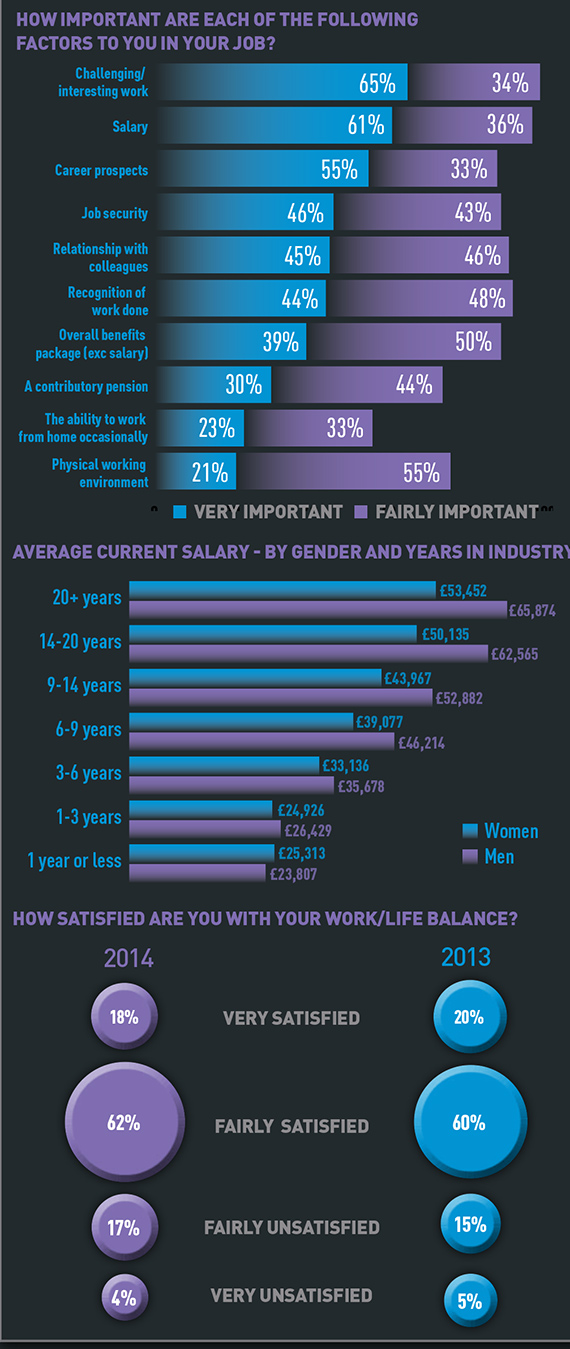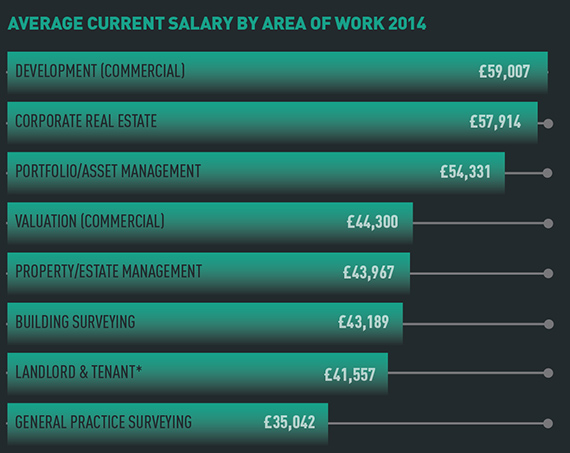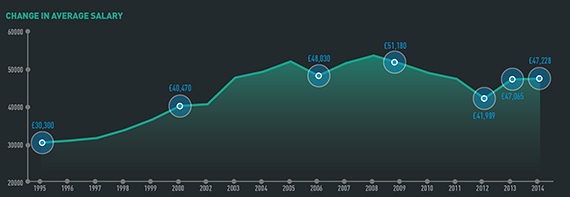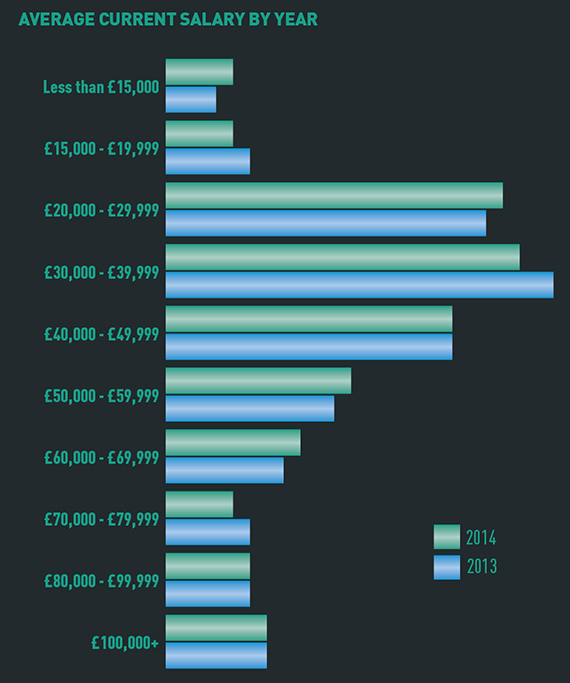In a less frenetic market, respondents revealed it is not just cold hard cash that drives them at work. Acceptance and equality are crucial if the property industry is to shake a poor reputation for promoting diversity. But first… a look at those modest salary increases.
A long way to go
It is not just the diversity statistics that are a first in this year’s salary survey. Salary was bumped off the top spot for the first time in the survey’s 23-year history. No surprise, though, that women’s salaries still trail those of their male counterparts. And just 18% of those surveyed are satisfied with their work/life balance.
Little by little…
A small increase in average salaries may not be what everyone had hoped for after the dramatic spike last year, but some might argue that a measured market is good news for longer-lasting growth. Measured certainly seems to be the case when it comes to pay packets, with an average growth of less than £1,000. Commercial development netted the highest average salaries at nearly £60,000, followed by corporate real estate and portfolio/asset management.
I didn’t want to be known as ‘the gay surveyor’
David Mann, co-founder of Freehold:
“Property is not always perceived as an attractive industry for anyone who is different.
But things are changing. Groups like Freehold give the gay community more transparency and some industry role models. And that helps anyone looking at joining the industry as well as some more senior people who now have more confidence about coming out and being themselves at work – which is a fundamental human right.
I have always been out at work but not always to my clients. Then you end up in a situation where you are skirting around the details of your personal life or being vague when you are talking about your partner, unless you decide to tell whoever you are talking to – which is, in effect, like coming out every single time. And you never know how people will react, though I am pleased to say that most of the reactions I have had have been absolutely fine.
When I started Freehold I was really nervous. I didn’t necessarily want to be the first building surveyor to come out so publicly. I don’t want to be known as ‘the gay surveyor’. I want to be known as a good surveyor.
But now we have over 600 members and support from the RICS, RIBA, BPF plus major property companies which have helped us by hosting and holding events. Compared with five years ago things already look very different. Companies like Cluttons, CBRE and JLL didn’t even think they had a problem back then, now they are biting our hands off to support diversity, ultimately to be part of a wave of change that is happening in property – certainly in relation to LGBT issues and equality.”
This is a real wake-up call
Elizabeth Slattery, partner, UK head of employment, Hogan Lovells:
“The survey results, indicating that a significant number of employees feel that they are discriminated against because of a protected characteristic, is a real wake-up call for employers in the industry.
Firms should be giving careful thought to how to respond to these concerns. Failure to do so could result in tribunal claims from individual employees; successful claims can mean substantial compensation awards as well as recommendations that an employer should take particular steps, such as workforce training or changes to procedures, to remove or reduce the discrimination that has occurred.
Although the survey results do not specifically address how far concerns about discrimination relate to pay, given the context of the survey employers will want to think seriously about the risk of equal pay claims.
Employers that lose equal pay claims lodged after 1 October 2014 will normally be ordered to carry out an equal pay audit of their workforce. If an employer has carried out a recent pay audit voluntarily a tribunal can decide not to make such an order.
Carrying out a pay audit voluntarily also gives firms an opportunity to take action to correct any pay imbalance that is revealed before claims are brought (although can obviously also be used as evidence in any such claims if corrective action is not taken). Tackling equal pay issues early makes sense from a legal and a commercial perspective. Doing so may help head off potential tribunal action as well as the accompanying unwelcome publicity that such claims can generate.”
















